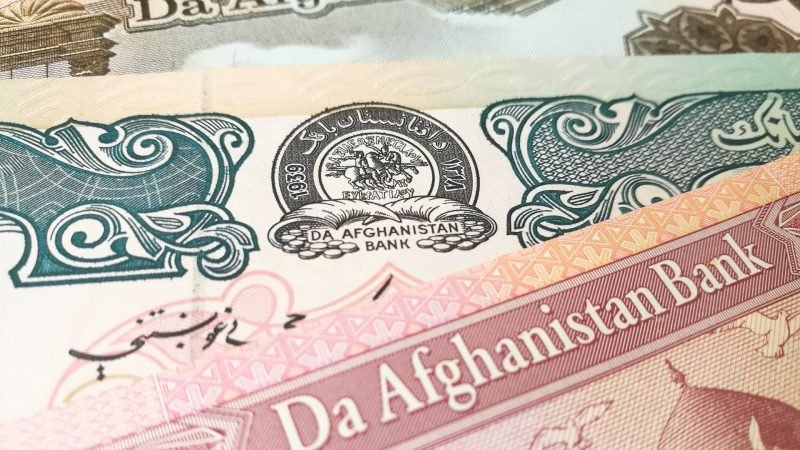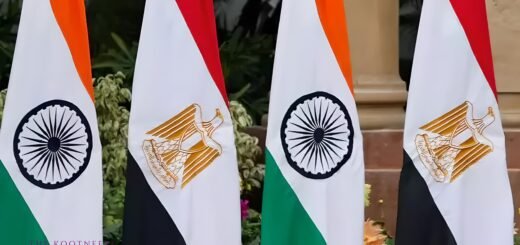The unforeseen future of Indo-Afghan Economy

The future of Indo-Afghan bilateral economic relations presently is uncertain owing to the formation of the new interim government in Kabul on 15th August 2021
The vehement capture of Afghanistan by the Taliban forces on August 15, 2021, after 20 years had shaken the entire world in surprise, instilling an atmosphere of terror and ambiguity. According to the reports, even the Taliban never expected to seize Kabul at such an easy pace and early date. The rise of the interim government in Afghanistan has resulted in the International Community reacting in different ways. The Indian economy had received several blows as a result of this.
India’s Contribution in the Afghan Economy:
India is one of the largest regional donors of Afghanistan and has invested over $3 billion in the past decades to help in the development of multiple roads, dams and hospital with the aim to bring about stability in the region as India’s trade and economy is directly affected by the stability there. India had even trained the Afghan army officers and security personnel. During the several development works undertaken by India, the Indian workers faced almost consistent attacks from the Taliban resulting in the death of many Indians. Approximately 150 ongoing Indian projects for development in Afghanistan has come to a standstill owing to the present circumstances. Zaranj is located near the Chabahar port in Iran which was developed by India to transport goods from India to Afghanistan and the wider Central Asian region. With the Taliban in rule, the link for bilateral international trade in the present scenario has come to a standstill point unless the future relation improves between India and the interim government in Kabul.
Hardships faced by the traders leading to an impact in the economy:
Trade and development unquestionably are going to be hampered in both countries owing to the present-day socio-economic and political environment. Afghan exports to India included a numerous variety of nuts, resins and dry fruits, Asafoetida and several medicinal herbs. India ships to Afghanistan several varieties of tea, coffee, pepper and cotton. The change of government had affected the import and export of the supply chain resulting in a severe hike in prices leading to massive inflation in the economy. The prices of dry fruits have doubled and in fact, has tripled themselves in the past handful number of days. With the nearing of the festive season, the Indian traders are concerned about the price hike which would hamper their profit margin. Consumers too are reluctant to buy at such a price hike. Some traders who had paid a lumpsum amount earlier are now in a straining situation about the supply of the products owing to the acute shortage of proper trading links. The Indian traders are facing payment delays and insolvency, disruptions in the supply chain and several other innumerable hardships.

The several trade routes have been shut down and the new interim government is yet to arrive at an agreement. There exists an air of confusion and tension among several traders who earn most of their revenue from the exports. According to a report, many traders stated that there exists no possibility of trade with Afghanistan for at least the next six months which might even, unfortunately, extend to a year as well leading to a downward fall in the demand and supply curve. It is difficult to predict the continued rate of inflation. The traders are vehemently looking for several other alternatives after facing massive losses.
The Taliban backed government is facing an acute economic crisis since there is a price hike, unemployment and suspended payments from the IMF, European Union and the World Bank which threatens that the economy will collapse and will further worsen the devastating humanitarian crisis. In this disastrous situation, the interim government must restore the normalcy of the bilateral relations at the earliest to cripple the economic crisis to some extent.
Perceptions:
Several analysts are pointing out a sharp contraction in GDP owing to the formation of the new interim government. They stated that the sharp contraction in the GDP may even be up to 20% in the coming years. A spokesperson of the Associate Chamber of Commerce and Industry in India referred to the situation as a grave humanitarian crisis and it would be premature to access the economic impact of the deteriorating geopolitics development in Afghanistan. The situation is bound to leave a perilous impact on the economy.
Conclusion:
The future of Indo-Afghan trade relations is uncertain as there are no signs of definite agreement on the part of both the Government. The bilateral relations are being affected adversely as the future is uncertain, shipments and payments of several traders, as well as the consumers, are stranded on a massive scale. Only a first round of talk regarding the future relation of both the countries has been initiated at the Indian embassy in Doha where it was discussed about the safety, security and early return of Indian nationals who are stranded in Afghanistan. India’s policy towards the new interim government in Kabul, the capital of Afghanistan is rested on the policy of “wait and watch” as the situation evolves. Unfortunately, as time passes during a crisis, options and space for favourable action often decrease, it is high time for India to initiate proper planning in Foreign Policy especially in matters relating to economic transactions.
References:
- Aishwarya Palit , “Afghanistan crisis: Indian trade worth $1.5 billion stops abruptly as Afghans stare at bleak future”, India Today, August 24,2021, https://www.indiatoday.in/india/story/afghanistan-crisis-indian-bilateral-trade-stops-abruptly-afghans-bleak-future-1844493-2021-08-24
- Mohamed Zeeshan, “India’s Confused Approach to Afghanistan”, The Diplomat, September 20, 2021, https://thediplomat.com/2021/09/indias-confused-approach-to-afghanistan/



















